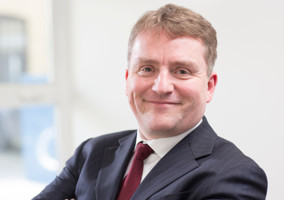There is no space for new legislation for a legal definition of full-time volunteering this side of Brexit, Lord Gus O’Donnell said at an event on volunteering held last night.
Speaking in response to James Probert, who was discussing the need for a legal definition of full-time volunteering on behalf of volunteering charity City Year, Lord Gus O’Donnell said that there is not space in the legislative timetable for any new primary legislation.
City Year is leading a campaign for primary legislation to give full-time volunteers a legal status. Currently full-time volunteers fall into the Not in Education, Employment or Training category. City Year’s chief executive explained the reasons for doing so in a Civil Society Voices post here.
O’Donnell was speaking at an event of celebrating Pro Bon Economics Volunteering. He was directing his comments to David Rossington, finance director of the Department for Digital, Culture, Media and Sport.
He said: “In a world where my lot are going to make life incredibly difficult for the government over the next few months to a year getting the legislation required for Brexit through, there is no space for any legislation. You are not going to get any legislation. So A, are you going to find a way to chisel this out? Or B, is there a way that this can go ahead without primary legislation for now?”
City Year ‘will wait for primary legislation’
In response, Rossington said: “You are absolutely right, the legislative timetable is chock a block, for exactly the reason you suggest. But that doesn’t completely rule out things like private members bills, there is that option.”
He said that Probert should look at what a report, due to be published shortly into what the legal-definition of full-time volunteering could mean, does to distinguish between “what can only be achieved through primary legislation, and what can be achieved without that for a period of time.”
However Probert said that City Year would wait for a legal definition of volunteering, and that there was an “immeasurable importance of status” of full-time volunteers, which was more important than any economic considerations.
He continued: “A technocratic fix that mends loopholes using administrative orders behind the scenes doesn’t give a respected status to people doing full-time volunteering. This requires primary legislation. And we will wait, this isn’t a one or two year gain – Britain needs this, and we will need it in 2022 as well. Or whenever Brexit is over.”
Britain lacks the vocabulary for volunteering
The event focused around a speech from Probert, as well as from Vidhya Alakeson, chief executive of Power to Change, which were then followed by questions from the panel. The panel included Rossington, as well as Bronwyn Curtis from JP Morgan and Peter Kellner, chair of NCVO. It was chaired by Lord O’Donnell who is chair of Pro Bono Economics.
Curtis questioned Probert on the use of the words ‘national service’ as a description of what City Year wants to achieve, its one year volunteering programme, as it is not compulsory and brings about negative connotations.
Probert said that the programme could be described as “national service for the 21st century, not for the 1950s”, but said that at this moment in time its priority was not what it is called but on gaining the attention of the public and mainstream media on the drive to create the one-year volunteering programme.
On advice from a member of the audience on abandoning the use of the word volunteering, Probert said: “The reason I use the word service is that we lack the vocabulary at the moment in the UK to properly differentiate between different kinds of volunteering. Full-time volunteering is qualitatively not just quantitatively different from part-time volunteering. It is not helpful to compare the two actually. They will do different things, they will get involved in different things.”
Civil society should organise itself
Rossington also said that the government should not get too involved in running civil society, and that to do so would be counterproductive.
He said: “I think that actually government can’t do everything, and government shouldn’t be organising what we call civil society, which I think is what we call the space between businesses, government and family life. That should organise itself.
“Although government can do a couple of things. The first thing is it can either make things very difficult or it can encourage civil society, and I think that is where there is a role in setting frameworks.
“Thinking that government can somehow step in and run civil society is completely wrong and probably counter-productive as well.”
Related articles












